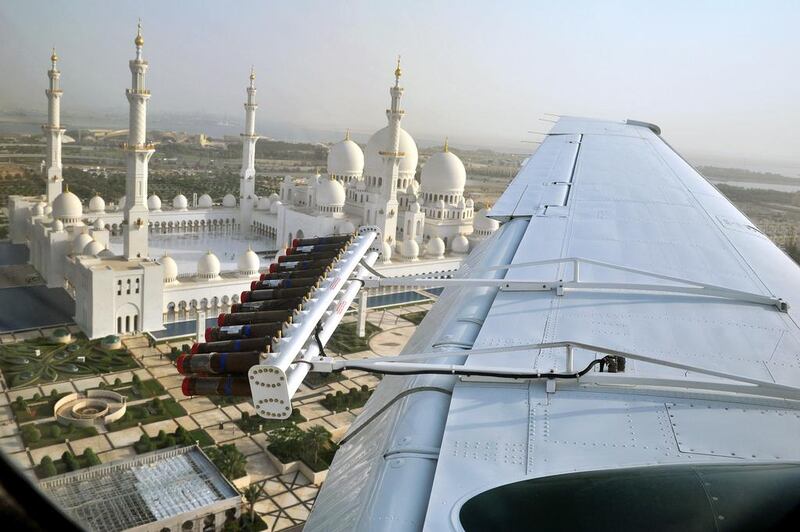MARRAKECH // The UAE is investing in “rain-enhancement” as lack of water could become a matter of national and environmental security, meteorologists have told the Conference of Parties 22.
Scientists have been looking at techniques such as cloud-seeding and the first annual grant of US$5 million has been awarded to researchers seeking solutions.
“Rain enhancement is a possible solution to water security, which is in turn related to national security because it entails food issues,” said Alya Al Mazroui, manager of the Research Programme for Rain Enhancement Science.
“By improving the science behind it we can improve our food production.”
A common technique in rain enhancement is cloud seeding, where chemicals are used to extract more moisture from clouds. But the method has been largely stagnant, extracting only 30 per cent more water.
“We are looking for more efficient solutions to increase the numbers as a source,” said Ms Al Mazroui.
Research shows that rain-enhancement projects have improved UAE crop yields by 5 per cent, she said.
“Compared with desalination it is more sustainable and viable. The environmental impact is much less on human beings and the marine environment.”
Ms Al Mazroui was speaking at a workshop at Cop22 by the research programme to share the latest results from its research with the scientific community.
The UN says 85 per cent of the world’s population lives in the driest parts of the planet and it is predicted that by 2050, 1.8 billion people around the globe will be affected by water scarcity.
“I believe that rain enhancement is one of the important methods of addressing water scarcity in arid regions,” said Mohammed Al Mheiri of the UAE National Centre of Meteorology and Seismology.
“We believe that talking to decision-makers here in Cop22 will help to push the science of rain enhancement.”
Last year the UAE awarded US$5 million (Dh18.36m) to three researchers for projects that are intended to expand global water solutions through science and technology. The award is annual and a second round of projects are being considered for this year’s prize.
Desalination is among the UAE’s main sources of drinking water but the salt it produces is commonly dumped into the ocean, where it can affect marine life.
Since 1945, rain enhancement has been explored as an energy-efficient method of providing water without the need for mass infrastructure. In developing countries, it was touted as the easiest way to deal with drought.
“Increases in population and economic growth are adding additional pressures on water supplies, and we need to address those pressures directly,” Mr Al Mheiri said.
“This is not just to the UAE’s benefit, this is to the benefit of all humanity. And believe me, there is a big potential in this science for solving the problems we face.”
Mr Al Mheiri said that the issue could not be solved on a national level and that collaboration on rain-enhancement research around the world was needed.
A common concern with rain enhancement is the prevalence of iodide, a chemical often used in cloud seeding that has been identified as a carcinogen.
“The UAE doesn’t use silver iodide,” said Sufian Farrah, a cloud seeding expert. “There are still huge gaps in the science, however, that we need to start work on.”
nalwasmi@thenational.ae






